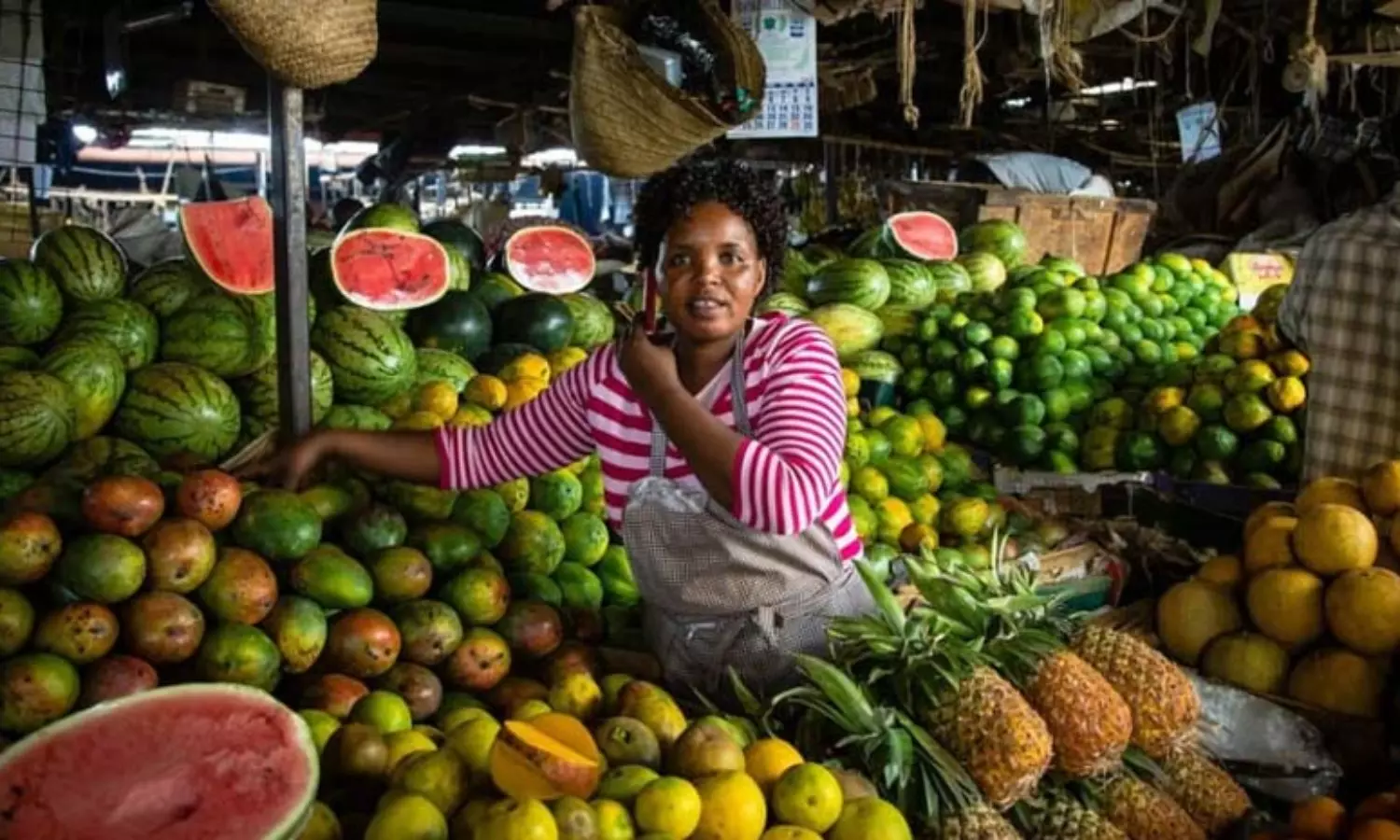Food for Thought | It's Kenya Fresh

Kenya produces some of the best perishables in the world, and today we are lucky to get them abroad nearly as fresh as in the Nairobi markets.
A couple of weeks ago, I was talking to one of the many guests of the ceremony to celebrate the new extension to our facility in Nairobi; hey I said to this person, my first work-related visit to Kenya was back in 1981.
I'm sure this unsuspecting victim hadn't even been born then, but nostalgia got the better of me and I just started talking about the perishables industry back then; about the real pioneers – family companies still carving out the future of such a great country, a land full of promise and opportunity.
Space on available flights used to be sold on the night of departure
In those days, growers and shippers turned up at the airport on the night of departure with boxes of perishables in the hope that someone might buy their wares and find space to fly them off to Europe, the promised land, where the consumers would be exposed to such delights as fine beans or passion fruit, all very exotic at the time.
The commercial export of flowers was still relatively unknown, until a handful of companies realised the country's potential. Fast forward to today, and Kenya is one of the largest producing countries, not only of fruit and vegetables, but also of flowers.
Exponential growth in perishables in the last few years
In 2015, Panalpina had a micro footprint in Kenya, as our CEO said at the recent opening – a total compliment of 5 staff and absolutely no perishables exports.
Soon, however, through the ambition of creating a global perishables network and the appetite to invest, Panalpina kicked off a series of strategic acquisitions by purchasing Airflo and subsequently Air Connection, becoming a truly perishables-oriented and best-in-class logistics provider in Kenya.
Today we have 350 staff and handle in excess of 65 million kilos covering a complete spectrum of products from the humble bean and the most delicious raspberries to the trendy avocado, not forgetting the most fragrant, beautiful flowers that would melt anyone's heart.
New Panalpina investment in Kenya
Panalpina has made a new investment in a state-of-the-art addition to our facilities at Nairobi's Jomo Kenyatta International Airport. Yes, that's the ceremony I was just making reference to. We listened to our customers and, like a good old-fashioned detective, investigated how we could better move cargo and reduce overall costs, offsetting the impact of volumetric charges.
 We now have the only facility at the airport with dedicated loading bays for skidded or palletized cargo and separate cold rooms to manage specific temperature requirements for products such as cuttings, with 11 loading docks, racking that maximises vital floor space, and multiple vacuum coolers.
We now have the only facility at the airport with dedicated loading bays for skidded or palletized cargo and separate cold rooms to manage specific temperature requirements for products such as cuttings, with 11 loading docks, racking that maximises vital floor space, and multiple vacuum coolers.
Add to that the continued use and global rollout of real-time temperature monitoring, not only in Nairobi but also in key import gateways for Kenyan perishables such as the Netherlands, the UK, and Belgium, and you get a picture of how far a Kenyan rose can go.
Overcoming obstacles and creating opportunities
In 2018, the air freight market for flowers in Kenya changed dramatically from being charged on actual weight to volume. This, for anyone who knows, added huge costs to shipping.
Other flower-producing countries such as Colombia had seen this change many years ago. Kenya was one of the last bastions where the carriers were more forgiving.
But as we have all seen, carriers have been placed under pressure to increase yields and maximise payloads. Growers and importers are now exposed to the reality of volumetric charges, which places great pressure on already fragile margins.
Weekly volumes for roses handled by Panalpina for the 2018 Valentine's Day peak alone, for example, spiked to 2,200 tons in late January 2018, up from the usual average of about 1,500 tons a week.
To overcome the shortage, Panalpina chartered more than 20 freight planes, cutting into margins but ensuring the products reached market and met customers' expectations.
I recommend you read the feature by Martina Stevis-Gridneff of the Wall Street Journal, which speaks of the logjam Kenya experienced at the beginning of the year and how Panalpina dealt with it.
By investing not only in infrastructure, but also processes around skidding, we have reduced the traditional multiple points of handling, minimising the impact of volumetric charging, and better maintaining the integrity of the product.
All of this results in a more transparent and cost-sensitive environment that also allows us to successfully navigate the different peaks.
From my early experiences in the 80s to now, I can see how Panalpina has invested in an empathetic approach to customers, challenging the industry and supporting those early pioneers who needed global partners.
This level of ownership, transparency and listening to an ever-changing market, working together with all stakeholders, is what will allow Kenya to maintain its leading position as a preferred source of perishables, now touching every continent, fresher than ever.
Colin Wells is the Global Head of Industry Vertical Perishables of Panalpina Perishables Network
Courtesy: Panalpina.com


